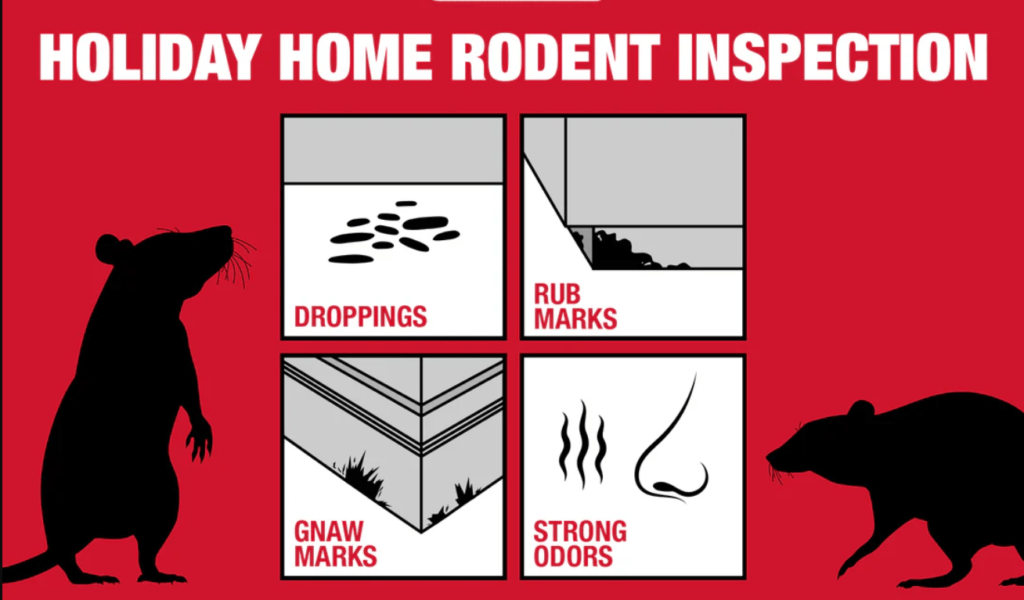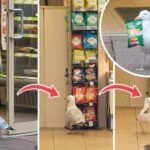Rodent infestations are more common than people think. These pests invade homes and businesses, as well as both urban and rural areas. Wherever there’s food, shelter, or warmth, rodents will follow.
Rats and mice are the usual culprits. They’re small, resourceful and surprisingly good at hiding. Once they’re inside, getting rid of them can feel like a never-ending battle. They chew, burrow and breed fast, making even a minor problem turn into a significant headache in no time.
Contents
Health Hazards Posed by Rodents
Rodents are infamous for their role in spreading diseases. They carry harmful pathogens that can infect humans directly or indirectly. Let’s break it down:
Direct Transmission
Rodents leave behind urine, droppings and saliva wherever they go. These waste products are teeming with bacteria and viruses. For example:
- Hantavirus: This potentially deadly virus is transmitted when people breathe in dust contaminated with rodent droppings, urine, or nesting materials. Even a single encounter with contaminated air in an attic, basement, or storage area can lead to infection.
- Leptospirosis is a bacterial infection that can lead to various complications, ranging from mild flu-like conditions to serious complications such as liver or kidney damage. It spreads through contact with soil or water contaminated by rodent urine. It can .
- Plague: Often thought of as a disease of the past, plague still exists in certain areas. It’s caused by the yersinia pestis, a bacteria which rodents and their fleas can carry.
Indirect Transmission
Rodents don’t act alone—they often carry parasites like fleas, ticks, and mites. These pests hitch a ride on rodents and bring their own set of dangers:
- Fleas: By contracting diseases from rodents, fleas can transmit diseases such as murine typhus or even contribute to outbreaks of the plague.
- Ticks: They inhabit rodents and can transmit Lyme disease or other tick-borne illnesses, which, if left untreated, can result in long-term health issues.
- Mites: They can cause skin irritation and spread diseases to both humans and pets.
Even when rodents are removed, their parasites may linger, creating secondary infestations that require additional control measures.
Property Damage and Economic Impact
Rodents don’t just harm health—they wreak havoc on property, too. Their constant need to chew is one of the most destructive traits they possess.
Types of Damage
Rodents can chew through almost anything, including:
- Electrical wiring: This is one of the most dangerous outcomes of a rodent infestation. Frayed wires caused by gnawing increase the risk of short circuits, power outages, or even house fires.
- Wood and insulation: Rodents burrow into walls, chew through wooden beams and tear apart insulation to create nests. Over time, this weakens a building’s structure.
- Food storage: Rodents are notorious for contaminating food. Once they invade pantries or storage areas, any exposed food or packaging is at risk.
Financial Costs
For homeowners, dealing with a rodent infestation involves not just pest control services but also repair costs. Replacing chewed wiring, fixing structural damage and cleaning contaminated areas can quickly add up.
The stakes are even higher for businesses. Restaurants, grocery stores and food manufacturers are especially vulnerable. A rodent sighting during a health inspection could lead to fines, temporary closures, or even permanent shutdowns. Negative reviews lead to a loss of customer trust and can also have lasting consequences.
The ripple effect of rodent infestations highlights the importance of prevention. Acting early saves time, money and peace of mind.
Role of Managers in Rodent Infestation Management
Business and property managers play a vital role in keeping rodents at bay. They are often the first line of defence in detecting and managing infestations.
One of their key responsibilities is conducting regular inspections. Early detection of droppings, gnawed furniture, or strange smells can prevent an infestation before it spreads. Managers also need to act quickly once a problem is detected. Delays give rodents time to multiply, making the situation much worse.
Prevention is equally important. Educating staff about proper waste disposal, sealing entry points, and keeping food storage areas clean. Adopting practices aligned with IOSH Managing Safely guidelines helps managers enhance their approach to pest control.
This framework raises awareness of health and safety responsibilities and encourages proactive measures like those needed for effective rodent management. Creating a safe and hygienic environment reduces risks and contributes to overall workplace safety. Rodents may be small, but their impact can be massive if left unchecked.
Implementing Effective Solutions
Fighting a rodent infestation requires expertise, tools, and commitment. A piecemeal approach will not work; instead, a comprehensive strategy is needed.
Equipping Teams with the Right Knowledge
Pest control training programmes equip workers, managers and teams with the skills to handle infestations effectively. Online programmes prepare teams for pest infestations by helping them understand:
- Recognised pest management systems
- Different types of pests
- Signs of pest infestation
- Control measures for each type of pest
Hiring Professionals
While in-house efforts are valuable, professional pest control services are often necessary. Experts bring:
- Advanced tools and technology for rodent detection and removal.
- Tailored treatment plans that target specific infestations.
- Knowledge of local regulations and health codes.
When combined with a trained team, professional pest control services create a robust defence against rodents.
Conclusion
Rodent infestations threaten health, property and finances. From spreading diseases to chewing through walls, the risks they bring are serious.
Staying vigilant, taking preventative steps and seeking professional help when needed can help you manage these problems.
Don’t wait for a few squeaks to turn into a full-blown invasion. Whether you’re a homeowner or a business manager, dealing with rodents early is always worth it.



Your article helped me a lot, is there any more related content? Thanks!
Your article helped me a lot, is there any more related content? Thanks!